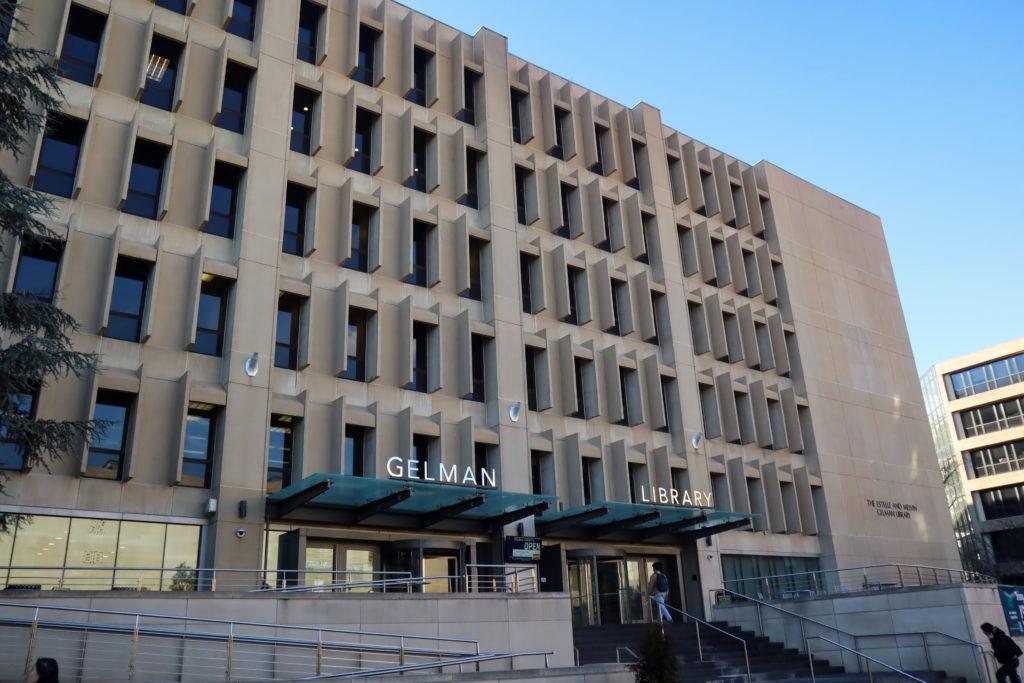A District Court judge ruled in GW’s favor after a employee of nearly three decades sued the University, rejecting the man’s allegations that GW unjustly fired him for taking family leave.
Trevor McFadden, a judge for the U.S. District Court for D.C., ruled officials did not violate the Family and Medical Leave Act when they fired Gelman Library assistant Abdulkadir Mohamed in 2019. In an order earlier this month, McFadden also sanctioned Mohamed for “inadequate discovery responses” and “flouting the court’s order,” ordering him to pay GW’s legal costs associated with a teleconference, 25 percent of the deposition and the costs of the University’s briefing of the sanctions motion.
The FMLA requires employers to allow workers to take time off for familial and medical reasons, but the judge ruled that Mohamed did not submit the proper documents to justify the leave and — when Mohamed didn’t reply to officials asking him to submit the documents — officials were justified in firing him.
Lincoln National Corporation, a third party the University uses to administer FMLA benefits, approved Mohamed for conditional leave in early September 2019 after he filed for leave from Sept. 24 to Nov. 29 in 2019 to visit his “seriously ill” father in Italy. The conditional leave was contingent on his submission of medical documents confirming his father’s illness.
But on Oct. 9, Lincoln denied his leave request because Mohamed failed to provide the medical certification within 15 days of their request, and Mohamed proceeded to leave for Italy in late October without providing the documents.
In November 2019, the University fired Mohamed after he failed to respond to a warning letter from the University after “weeks.” The letter said officials would perceive a nonresponse from Mohamed as job abandonment.
In the ruling Friday, McFadden said the University “did nothing” to interfere with Mohamed’s ability to take FMLA leave because he knew he needed to submit medical certification to go on leave. McFadden sided with GW’s argument that Mohamed didn’t provide basic discovery in the suit — a pre-trial stage in which parties can obtain evidence from one another — by raising “nonsensical objections” in interrogatory meetings and failing to provide requested documents.
“Mohamed was approved for conditional leave, shirked his duties, got his leave denied and then went AWOL for weeks on end while ignoring his employer,” McFadden said. “The University did not interfere with his FMLA rights when it fired him for that.”
In November 2021, Mohamed sued the University for allegedly violating his equal rights under the law and the Family and Medical Leave Act. McFadden dismissed his equal rights under the law violation allegation in August of 2022.
Attorneys representing Mohamed didn’t respond to a request for comment. A University spokesperson did not return a request for comment.
McFadden said the University had a legitimate, nonretaliatory reason to fire Mohamed. He said one of Mohamed’s arguments that his medical certification was the pretext for his termination is a “dud” because the University started the termination process Nov. 6, 2019, the day before Mohamed finally submitted the certification Nov. 7.
“The man says that the employer interfered with his rights under the Family and Medical Leave Act and retaliated against him too,” McFadden said. “The employer did neither.”
While he was employed, Mohamed also filed complaints against the University through the Equal Employment Office, including after he was denied a promotion in 2008 and demoted in 2013. He alleged his direct supervisor was verbally aggressive to him and that an EEO employee was “hostile and inappropriate.”





